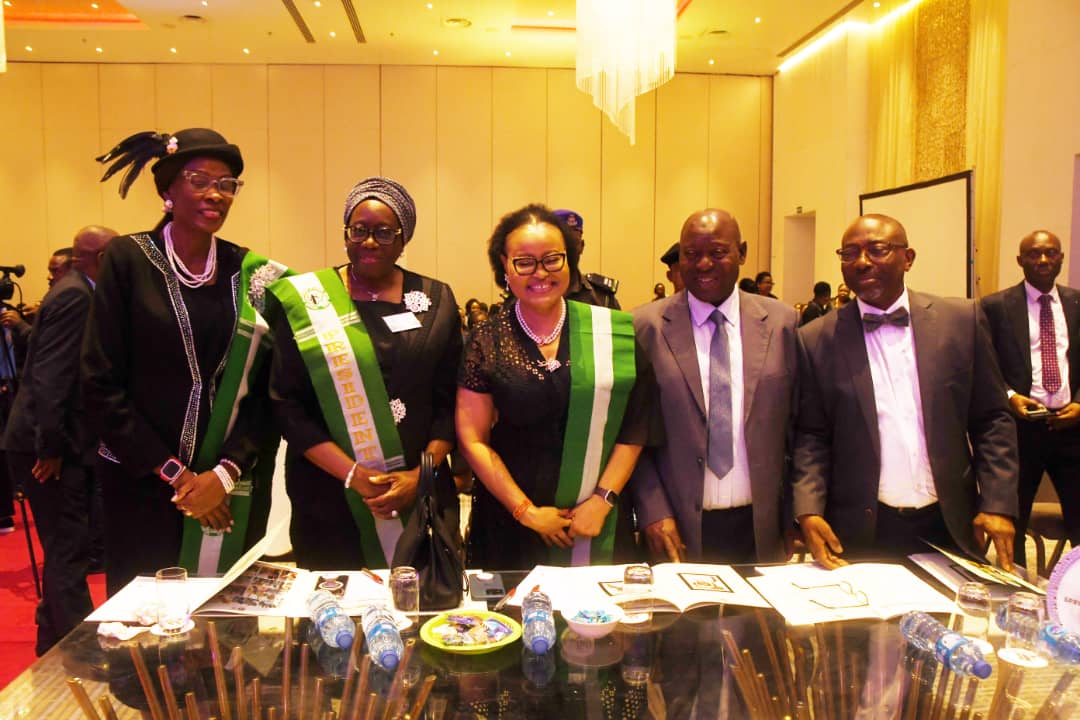GOVERNOR Babajide Sanwo-Olu of Lagos State has charged women judges to identify obstacles that hinder women’s advancement and strategies and collaborate on how to overcome them.
He urged them to carve out a future where women in the legal profession would stand on equal footing with their male counterparts.
Governor Sanwo-Olu gave the charge while addressing the 1st South-West Zonal Workshop of the National Association of Women Judges of Nigeria (NAWJN) held at Marriot Hotel, GRA, Ikeja.
The theme was “Breaking Leadership Barriers for Women in the Legal Profession”.
The governor, who was represented by the Secretary to the State Government, Mrs Bimbola Salu-Hundeyin, expressed joy that Nigerian women judges compete favourably and effectively with their counterparts globally in the dispensation of their sacred duties as members of the hallowed inner bar.
He celebrated the women judges, particularly in the Southwest of Nigeria.
Governor Sanwo-Olu also commended Justice of the Supreme Court, Kudirat Kekere-Ekun for sustaining the platform for women judges to confer and build a structure that would sustain the legal instrument of the state and the country.
“Your dedication and commitment to advancing women’s leadership in the legal profession are truly commendable and I am confident that this conference will provide robust solutions and forge new and workable strategies to bring about lasting and tangible change that you have constantly desired and would live forever in our lives“, he said.
The Chief Judge of Lagos State, Justice Kazeem Alogba, in his remarks, celebrated the judges and welcomed them to Lagos.
Justice Alogba said that women have strategically dominated the legal profession in Nigeria. He applauded the women judges for their doggedness and relentlessness in discharging their duties.
According to him, the female gender is becoming more successful in the profession as more females graduated with distinction at the recent Law School graduation in Abuja.
Earlier, Justice Kekere-Ekun, who is the President of NAWJN, in her opening address, remarked that there is still much work to be done notwithstanding that the country has come a long way in terms of women achieving leadership positions in the legal profession.
She said: “The journey towards achieving true parity and inclusivity remains ongoing. Inclusivity is the campaign theme of the 2024 International Women’s Day celebration tagged “/inspire Inclusion’, which is also part of NAWJN’s vision for women in law.”
Justice Kekere-Ekun noted that there are still many challenges inhibiting women from reaching the zenith of their careers which she listed to include domestic impediments, difficulty in maintaining a work-life balance, lack of support in the home, working conditions that are not favourable to women such as frequent postings of women with young families, gender bias — the belief that certain positions are more suited to the male gender, lack of mentorship programmes, to name a few.
She pointed out that women have been exceptionally blessed by God with innate skills and the ability to multi-task, which can enhance and support nation-building.
“It is therefore imperative to recognize the invaluable need for the participation of women in policy making and to strive to ensure their inclusivity in the promotion of policies that are gender-sensitive and which provide greater access to justice.
“There is no gainsaying the fact that women have so far also contributed to shaping the legal landscape globally. The UNODC International Day of Women Judges’ event on “Women in Justice and Women for Justice” held on the 11th of March 2024, with several insightful papers presented and discussions on the need for inclusivity of women in judicial policies, attests to this fact. Indeed we have come a long way as women but there is still a long go ahead.”
She said that the International Association of Women Judges had partnered with Co-Impact, a philanthropic collaborative fund to develop and implement a multi-year programme to enable, support and promote sustainable leadership pathways for women in leadership in the Global South. To this end, it is working with affiliate associations in five countries (Nigeria, Kenya, South Africa, Mexico and the Philippines) to address and work out strategies to overcome the barriers confronting women in leadership in the profession. The initiative is called Women In Leadership In Law (WILIL).
She said it was for this reason that the executive members of NAWJN decided to hold workshops in the six geo-political zones of the country to beam a spotlight on these challenges and to also proffer solutions that are uniquely suited to our own environment.
It is hoped that the series of workshops will provide a roadmap that will lead to the enhancement of women in leadership in the judiciary and other fields of endeavour, which is expected to positively impact high-level decision-making and overall best practices within the profession.
Eighteen-Eleven Media


